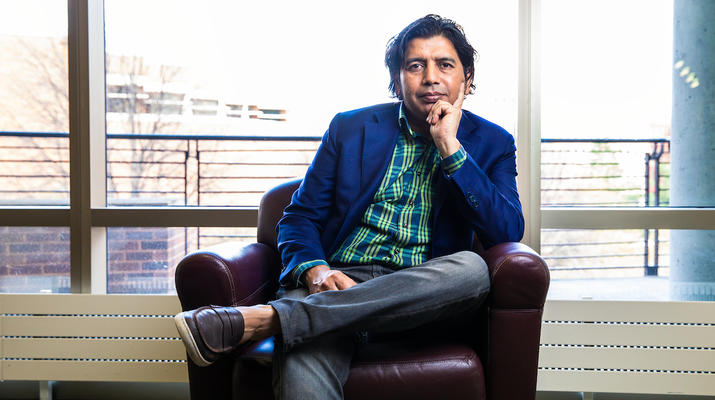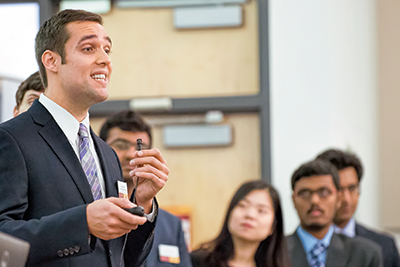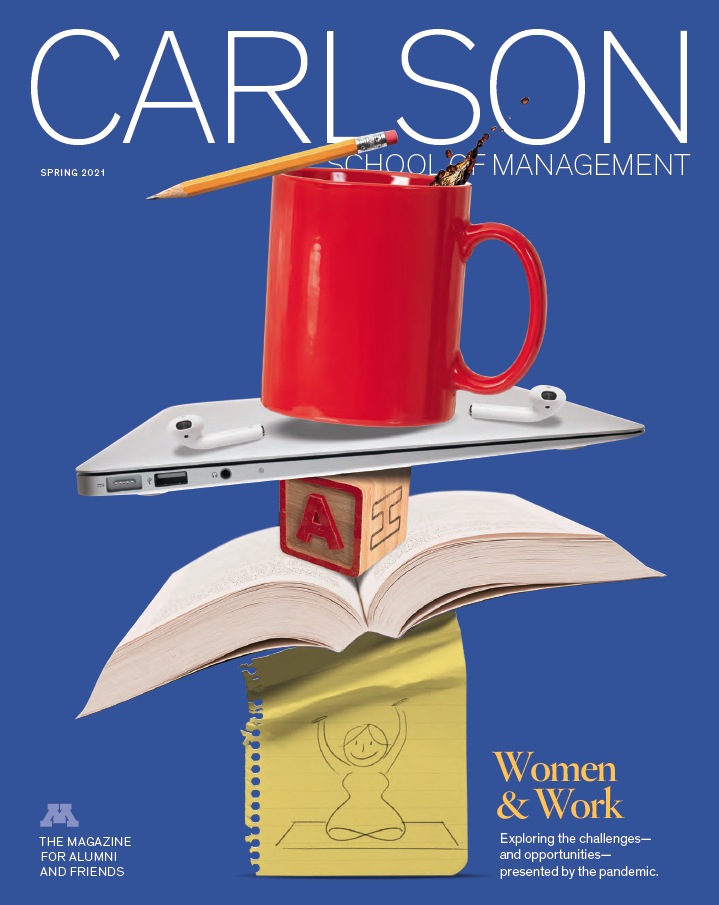
Bridging the Gap
Friday, April 2, 2021
McKnight Foundation’s support of experiential learning projects has major societal impact.
Minneapolis–based McKnight Foundation is one of the largest private foundations in the state of Minnesota, with a mission to “advance a more just, creative, and abundant future.” McKnight has long been a philanthropic partner of the University of Minnesota and the Carlson School, and, in recent years, has worked with the Carlson School on projects designed to investigate issues and seek solutions to problems of equity and inclusion in the Twin Cities.
One of McKnight’s main program areas is Vibrant & Equitable Communities, with the goal to build a future with “shared power, prosperity, and participation for all Minnesotans.” McKnight has supported several collaborations between local Twin Cities–based community organizations and Carlson School research institutes and student enterprises under this theme.
Experiential learning labs such as the Carlson Consulting Enterprise (CCE) and the Carlson Analytics Lab have identified project ideas and nonprofit and public sector partners working on problems the McKnight Foundation has an interest in addressing, including Hennepin County, Metro Transit, and HousingLink, a nonprofit that connects individuals with affordable housing. Students, led by a faculty advisor, then take on the project using the skills they are building in the classroom, with the help of funding from McKnight.
In a recent two-phase project, Carlson Consulting Enterprise students investigated mobility and transportation issues, particularly within areas of concentrated poverty, in the Twin Cities on behalf of Metro Transit. Just as they would if working for a major consulting firm, students interviewed a range of stakeholders and community members with competing interests, conducted research on best practices and implementations in different cities, and presented their proposed solutions to their clients. This collaboration allows public sector or nonprofit organizations access to high-quality consulting assistance, where it might otherwise be financially untenable.
“McKnight typically funds grants to nonprofit and public sector organizations, but solutions to complex problems typically come cross-sectorally. CCE brings in the business perspective to public sector and nonprofit work,” says Dave MacCallum, associate director for CCE and the main advisor to the student consultants throughout the two project phases.
Though this was a student project, it was not an abstract case study. The work of the eight students has potential real-world implications for improving a multimodal transportation system in a major metropolitan area. Mobility and transportation issues in areas of concentrated poverty limit a community’s access to employment, healthcare, education, and other services, and contribute to structural inequality. Based on the student recommendations, Metro Transit is implementing a pilot program of mobility hubs in Minneapolis. These scattered mobility hubs are designed to be more efficient than the existing hub and spoke model, and increase access, equity, and sustainability in the system.
“We are grateful to donors such as the McKnight Foundation, whose support allows CCE students to pursue projects with public sector and nonprofit partners, with a social benefit at their core,” says Siddharth Chandramouli, managing director of CCE.
The Carlson Analytics Lab also worked on a high-impact project for Hennepin County, made possible by a McKnight grant. The lab’s students analyzed data across seven interrelated domains—employment, education, income, housing, transportation, health, and justice—to address economic and social disparities of residents. They built a graph database that identified factors related to wellbeing and assessed their unequal distribution.
Through this process, the team identified areas of food insecurity by examining data from the Supplemental Nutrition Assistance Program (SNAP), a federal food-assistance program for low-income individuals and families. By observing estimated versus actual SNAP enrollment, the team identified underserved areas as well as potential co-occurring factors, such as lack of internet access and language barriers. The students then made recommendations to the county partners to battle the disparity in access and usage, which disproportionately affected Black and Asian residents.

There is nothing more important than taking the power of advanced analytics, machine learning, and AI to the cause of social justice.
Ravi Bapna, academic director of the Carlson Analytics Lab, acknowledges the importance of the McKnight Foundation’s contributions to collaborations like this between the lab, the county, and a funding organization, which will hopefully improve wellness outcomes for a vulnerable population.
“There is nothing more important than taking the power of advanced analytics, machine learning, and AI to the cause of social justice,” he says. “But doing so effectively requires partnerships and coalitions between local governments, foundations, and the academic community of faculty researchers and graduate students.”
“McKnight has been pleased to support Carlson School research institutes and student enterprises over the years,” says David Nicholson, McKnight’s Vibrant & Equitable Communities program director. “Their efforts have demonstrated the power and ingenuity that can arise from cross-sector collaboration, and many have had the real-world potential to transform existing systems or create new ones.

